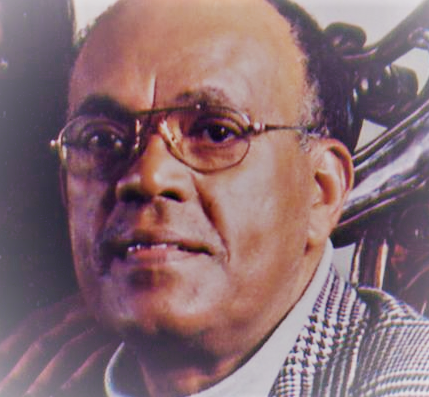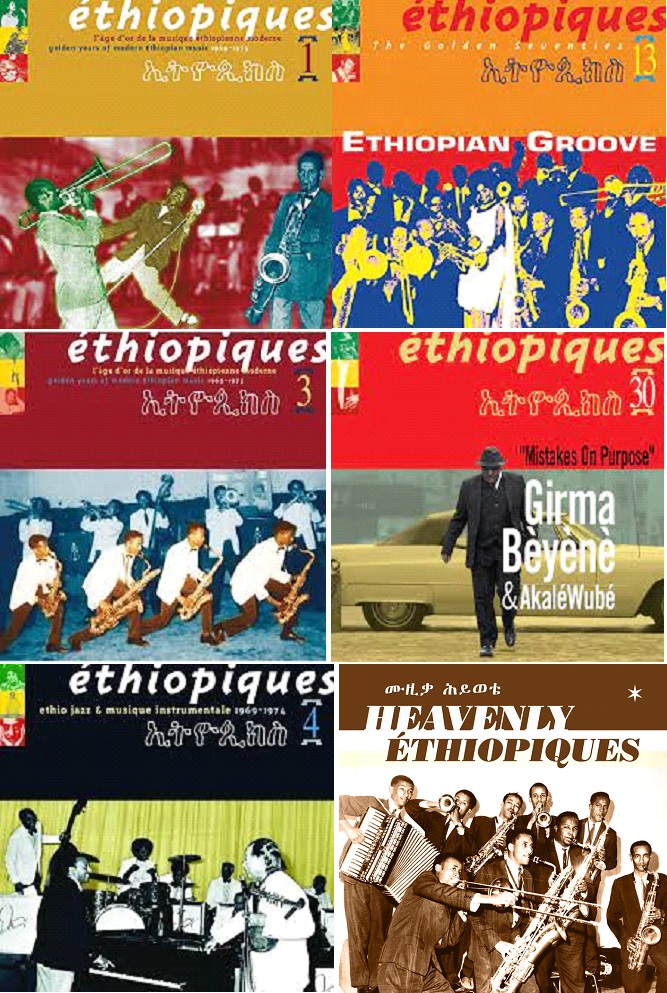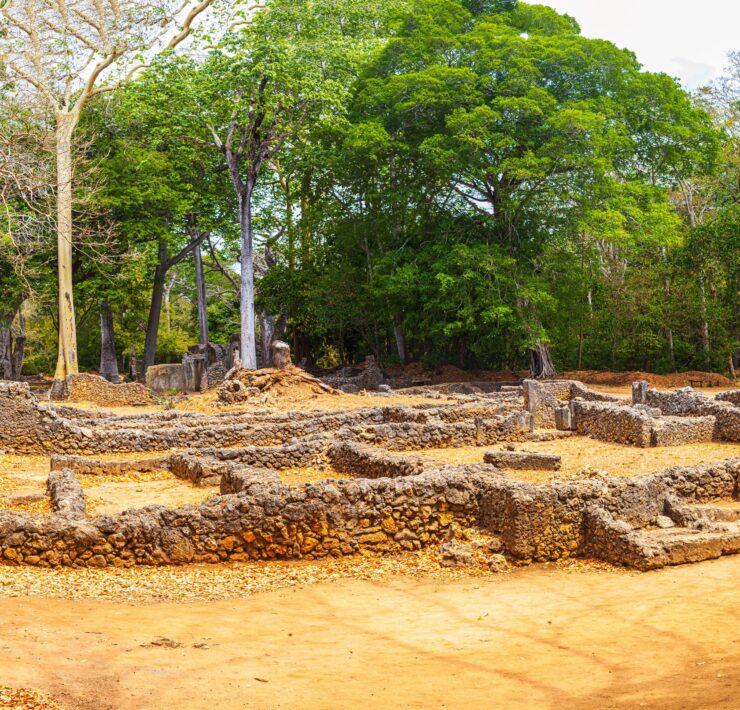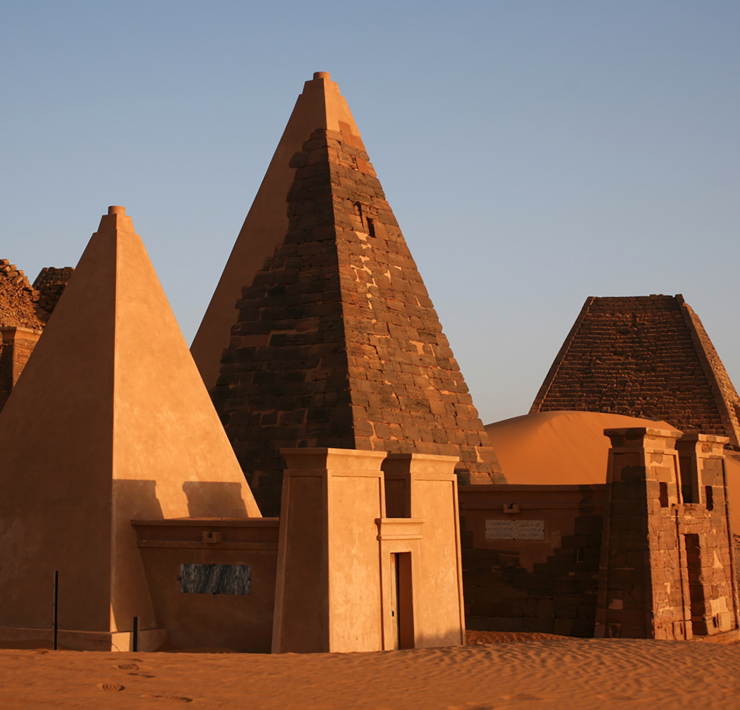Ethiopiques: Vision and Perseverance

Abel Merawi is from Addis Ababa. He is an English…
The unconquerable spirit of brave Ethiopians in battle with their valorous deeds has been written in volumes and it has been the source of pride. But battle was not the only frontier for Ethiopians; music has also been another arena that was rescued by brave visionaries. It is common to hear both the young and the old praise Ethiopian music from the 1960s to the 90s. They are classical works that serve as a paragon of music for the generations that followed. Even though the music has been celebrated, the story behind it has not been widely known and given recognition. It is a marvelous story of struggle, without which Ethiopian artistic expression would not have had world class recognition.
It all began with the visionary, Amha Eshete, the sole music producer in the 1960s. He had been working in Asmara, Eritrea, when he was first exposed to the world-class musical masters with their blues, funk and other exotic music genres. By importing music equipment and various music records, he set up the first music shop in Addis Ababa. Such endeavors were not even considered at the time, yet everything sold out in weeks. People even lined up on the streets outside his shop, just to listen to the tunes that resonate from the speakers. Had he limited his work to selling these international music records, he would have been just another businessman rather than a visionary. Yet, he envisioned the establishment of an Ethiopian music industry similar to the ones that existed in Europe and America.
In those days, there were no independent artists. Musicians were just civil servants, working under the Emperor with monthly salaries. Their music belongs to the government or ‘the people’ and they did not exercise any right over their artistic works. Most feel that the artist has to be free from any strict controlling hand, be it from the government or from the society. Such control kills the artistic spark and the work ends up lacking soul. Thus, we can imagine how stunted Ethiopian music would have been if things had continued in such a ruinous path. It was during this time that Amha Eshete stepped up to the center stage, and began to shake the system. He started discussing his vision with musicians such as Alemayehu Eshete and Mahmoud Ahmed. Though there was some hesitation on the artists’ side – who can blame them – there were some who shared his vision. At the time, Emperor Haile Selassie had a declaration regarding the music industry to release songs that could be used as an advantage. Amha set up a record label and began recording with the artists, and within a short time it resonated through the air of the capital city.

These bright days of the music industry were short lived. They were followed by the darkness that enveloped the nation in the political arena. Things reached their climax with the overthrow of the Emperor and the Derg regime setting up a military government. As everything else, the music industry was suffocated and Amha Eshete left the country and began a life in the US. The artists were either working on music that promote governmental agendas, working in other professions or even in prison. Everything went on a down spiral, and it seemed like the short but glorious life of Ethiopian music has come to a halt. But as the expression goes: when one door closes another one opens. Ethiopian music had already travelled to Paris, France, and a radio station was has played it. Francis Falceto, who at the time was sort of experimenting with all sorts of music and producing them, heard Mahmoud Ahmed’s music playing, and was possessed by it. He went up and down, to know from where this music came from and who the artist is. His journey led his to Ethiopia; he intended to get all the works of Amha Eshete and fly the musicians to Paris and perform there, as he has done with artists across the globe.
Little did Francis knew, the country was under a dictatorship that did not give a hoot about music, and it was suspicious of any foreigner. Taking artists to America was out of question since Ethiopian was a socialist country and considered US as an imperialist. Anyone who travels to such a country was deemed as a conspirator and a traitor. This made the vision of Francis almost impossible. Finding the situation in Ethiopia helpless, he travelled to the US and met with Amha Eshete. As a last resort, Francis wanted to have access to the music records by making a deal with Amha. This could not be carried out since Amha Eshete has a firm stand regarding loyalty. He was not willing to sign any deal without the consent of the artists. However, he promised Francis that they could commence their work if and when the situation in the country changes for the better.
In the course of time, Amha Eshete had made arrangements that took two years, in which he agreed with Derg officials in a clandestine manner. He arranged for about 10 artists, including Mahmoud Ahmed and Girma Beyene, to travel to USA and perform. Their first performance had a handful of audience, yet they played their hearts out as if they were playing to a stadium filled with crowd. This attempt on a music tour was also temporary. It all came to an end with some of them remaining in America and some travelling back to the country since they had the social responsibility of taking care of their family. As everything comes to an end, so did the Derg regime. Amha Eshete came back to the country, but he found the country in a different, a gloomy spirit. Yet he didn’t give up and neither did Francis. As things settled down, they kept their promise of contacting the artists and began their work. Thanks to their vision and perseverance, the music recordings were successful and reached world-class fame in Europe, America and beyond. The Ethiopiques music records have reached 21 and they continue to be a source of pleasure across generations. The story of such struggle and triumph is important to remember because it is an inspiration to everyone. We are all indebted to this type of people for they are a testament to the free human spirit, be it in music or any other endeavor.
What's Your Reaction?
Abel Merawi is from Addis Ababa. He is an English literature teacher, freelance writer/reporter for Ezega.com and an Amharic-English translator and editor. He also writes for www.msingiafrikamagazine.com. You can reach him via: abelmerawi4@gmail.com

















